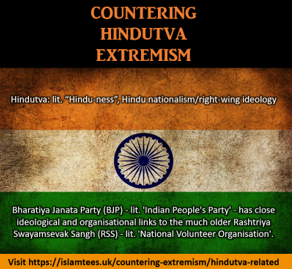Question: Why did the Prophet (صلى الله عليه وسلم) marry a number of women?
Answer: To Allah belongs unlimited wisdom and it is from His Wisdom that He, the Most Glorified allowed men, in the previous Revealed Laws and in the Law of our Prophet Muhammad (صلى الله عليه وسلم) to take in the bonds of matrimony more than one wife.
Permission to marry more than one wife was not specifically for our Prophet, Muhammad (صلى الله عليه وسلم). For Ya’qub, upon him be peace, had two wives and Sulaiman, the son of Dawud, may the peace of Allah be upon both of them, collected ninety-nine wives and he visited (i.e. had sexual intercourse with) all of them in one night, in the hope that Allah would bless him with a son from every one of them, who would fight in Allah’s cause.
This was not something new in the Law, nor does it oppose common sense, nor the requirements of the Fitrah;[1] indeed, wisdom necessitates it. For women are more in numbers than men, as censuses continually prove, a man may possess so much physical strength that he needs more than one wife, in order that he may be able to indulge his desires in a permissible way, rather than in a prohibited way. Otherwise he will be forced to repress his desires; or the woman may be suffering from some illness, something may prevent him from fulfilling his needs, such as menstruation or postnatal bleeding, or anything else that prevents a man from fulfilling his desires with her. So he may need another wife whom he may fulfill his desires, rather than repressing them or committing indecency.
Since plurality of wives is permissible and justified, logically, in accordance with the Fitrah and the Islamic law, and since the Prophets of old used to practice it – indeed it could be said to be obligatory in cases of necessity or need sometimes – then it is not surprising that our Prophet, Muhammad (صلى الله عليه وسلم) did so.
There are other reasons he married a number of women which have been mentioned by the scholars, such as strengthening the ties between him and some of the Arab tribes – so that perhaps it may result in some strength for Islam and aid in its spread through increasing harmony, affirming ties of love and brotherhood. It could have been to give shelter and solace to widows that which they had lost, for in that is freedom from worry and relief from hardship. The Islamic law has prescribed the way for the community to help those who lose their husbands in Jihad and the like; there is also the hope of increasing offspring, which helps in restoring a natural balance and in increasing the numbers of the population and it helps those who wish to spread the religion.
The need for it is not only to satisy desire, as is proved by the fact the Prophet (صلى الله عليه وسلم) did not marry virgins or young women except ‘Aishah, may Allah be pleased with her – the rest of his wives were matrons. If he had been driven by desire and physical lust to marry a number of women, he would have chosen young virgins in order to satisfy his lust, especially after he had migrated, the lands had been liberated and the Islamic State established. Then the power of the Muslims was firm and their strength increased, and every family desired that he should marry their daughters – but he did not do so. He only married for noble purposes and high considerations, which are clear to those who have studied the circumstances surrounding each of his marriages. If he had been a man given to base passions, it would be known from his Seerah (biography) to be the case when he was young and strong. But that was when he had only one wife, his noble spouse, Khadijah bint Khuwallid, may Allah be pleased with her, who was older with him. If that were the case, he would have been known for behaving unjustly with his wives, who were of different ages and degrees of beauty. But in fact, he was not known except for his absolute righteousness and honesty in his personal behavior and chastity, as both a young and old man. All of this goes to prove his decency and high moral character and his integrity in all his affairs, so that he was acknowledged as such even by his enemies.
[1] Fitrah: The natural state in which we are created.
The Permanent Committee
[Taken from Fatawa Islamiyah, Darussalam, Volume 1 – Creed, p. 296-298]















































































